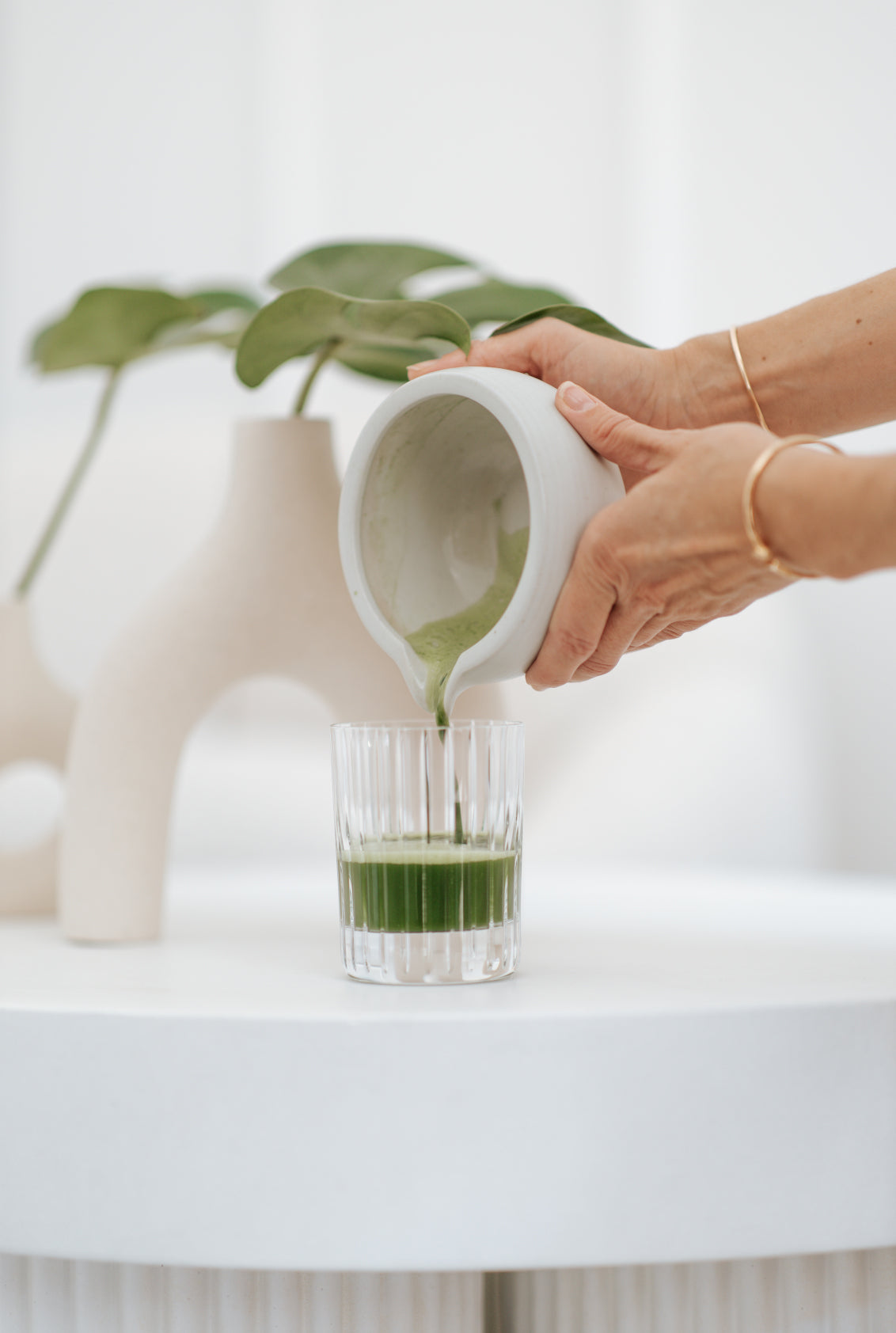Matcha - Green Elixir Full of Antioxidants
In the world of well-being, the interest and demand for nutritionally rich superfoods is growing rapidly. Among them, matcha has earned a reputation as a nutritional superstar, especially for its impressive antioxidant content. Today we will 'dive' into the world of matcha and explore how its antioxidants contribute to its extraordinary properties.
What is Matcha?
Matcha is a type of green tea powder that has its roots in Japanese culture. Unlike regular green tea, where we just steep the leaves in hot water and throw them away, matcha involves consuming the whole tea leaf into powder. To create matcha, the tea plants are covered for several weeks before harvesting, which increases the chlorophyll content and leads to a bright green color. After harvesting, the leaves are steamed, dried, and ground into a fine powder.
Antioxidants in Matcha
Antioxidants are compounds that help protect the body from oxidative stress and free radicals, which can damage cells and lead to a variety of health problems, including cancer, heart disease, and aging.
Matcha is full of various antioxidants, but the most important ones include:
- Epigallocatechin gallate (EGCG): EGCG is a catechin, a type of natural phenol and antioxidant found in tea leaves. In matcha, the concentration of EGCG is significantly higher compared to traditional green tea. EGCG has been extensively studied for its potential health benefits, including its anti-cancer and anti-inflammatory properties.
- Polyphenols: Matcha contains high levels of polyphenols, which are a group of plant compounds with antioxidant properties. These polyphenols, along with EGCG, are known for their role in fighting oxidative stress.
- Chlorophyll: The bright green color of matcha is a result of its high chlorophyll content. Chlorophyll is a powerful antioxidant that can help protect cells from oxidative damage.
- Catechins: Matcha is rich in various catechins, such as epicatechin (EC), epicatechin gallate (EKG) and epigallocatechin gallate (EGCG). These compounds are responsible for many of matcha's health benefits.

Health Benefits of Antioxidants in Matcha
The antioxidants in matcha offer a number of health benefits, including:
- Reduced oxidative stress: Antioxidants in matcha help fight oxidative stress and reduce damage caused by free radicals. This in turn can reduce the risk of chronic diseases.
- Improved heart health: Regular consumption of matcha is associated with a reduced risk of heart disease, as it can help lower bad cholesterol levels and blood pressure.
- Improved cognitive function: The presence of EGCG in matcha is associated with improved brain function and reduced cognitive decline.
- Weight management: Some research show that the combination of caffeine and antioxidants in matcha can boost metabolism and support weight management efforts.
- Cancer prevention: Although more research is needed, the high concentration of EGCG in matcha has shown the potential to inhibit the growth of cancer cells and reduce the risk of certain types of cancer.
How to enjoy Matcha
To reap the antioxidant benefits of matcha, it's important to consume it in a way that preserves its nutrient content.
Here are some tips:
Traditional matcha tea: The most authentic way to enjoy matcha is to whisk the matcha powder into hot water and drink it as a foamy tea. This is how it is most often consumed by the Japanese.
Trendy matcha latte: The most popular is the matcha latte, where the powder is mixed with water, and plant-based milk is added as desired. It does not go well with cow's milk, since it contains calcium, which blocks the absorption of nutrients from matcha into our body.
Smoothies: You can add matcha to your favorite smoothie for an extra antioxidant boost. Mix it with fruit, yogurt or vegetable milk for a tasty and nutritious drink.
Matcha Desserts: Matcha can be used in a variety of recipes, from cookies to energy bars, which is great for incorporating its health benefits into sweet snacks.

Matcha is much more than a trendy drink; it is a nutritional food rich in antioxidants that can benefit our health in many ways. By including matcha in your diet, you can take advantage of its potential to reduce oxidative stress, improve heart health, support cognitive function, help with weight control, and possibly reduce the risk of certain diseases. So, the next time you enjoy a cup of matcha, be aware of the fact that you are not only enjoying a delicious beverage but also giving your body a healthy dose of great antioxidants.










